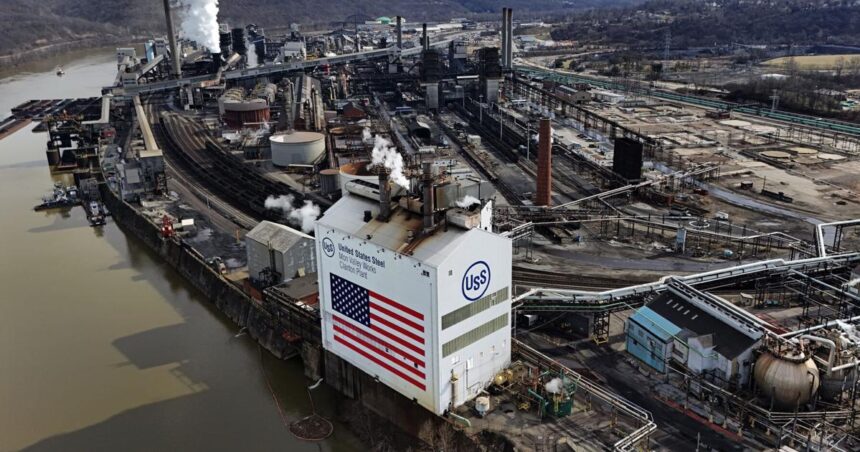WASHINGTON — As president, Donald Trump imposed a 25% tariff on foreign steel, impacting Clips & Clamps Industries, a Michigan auto supplier. This move raised the company’s material costs, making it harder to compete with overseas rivals, and resulted in the loss of several contracts.
Jeff Aznavorian, the company’s president, had hoped for relief with Joe Biden taking office.
However, Biden mostly maintained Trump’s tariffs on steel, aluminum, and various goods from China.
“It was surprising that an administration with different ideologies would keep the policies so intact,” Aznavorian said.

A 2024 Ford F-150 truck is assembled on April 11 at the Dearborn Truck Plant in Dearborn, Mich. Despite their differences, President Joe Biden and Donald Trump have adopted similar trade strategies. The impact of tariffs and other trade measures is significant in manufacturing states like Michigan, Wisconsin, and Pennsylvania.
Trump and Biden may not see eye to eye on many issues, but when it comes to trade, they share surprisingly similar approaches.
Regardless of whether Biden or Trump wins the presidency, it appears that the United States is likely to maintain a protectionist trade policy.
People are also reading…
This month, Biden introduced new tariffs on Chinese electric vehicles, advanced batteries, and other products in an effort to prevent Beijing from flooding the U.S. with cheap imports.
The tilt towards protectionism reflects the widely held belief that increased imports, particularly from China, have led to the loss of American manufacturing jobs. This is a key issue in industrial states that are likely to play a crucial role in determining the outcome of the presidential election.
“If you look at the election, it’s clear,” said William Reinsch, a former trade official now at the Center for Strategic and International Studies. “Where are the deciding states? Pennsylvania, Michigan, Wisconsin—right there, you can see that trade is going to have an outsized role.”





